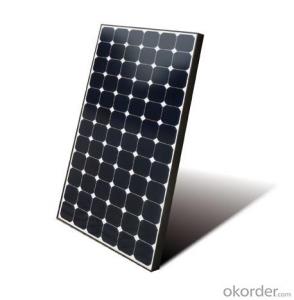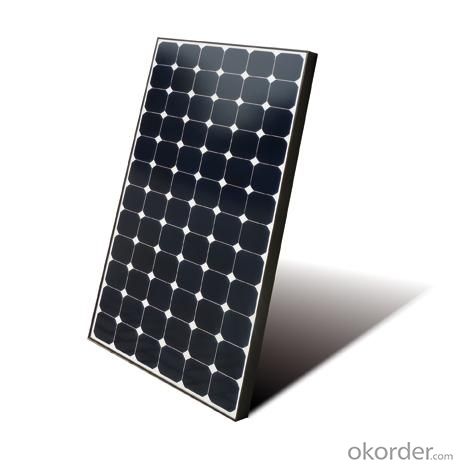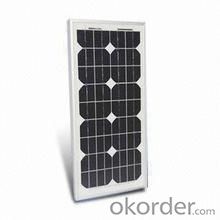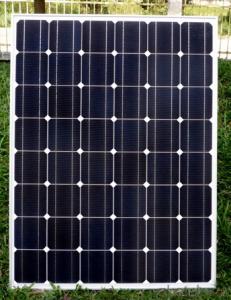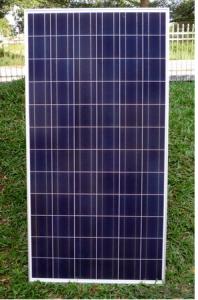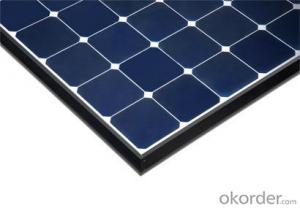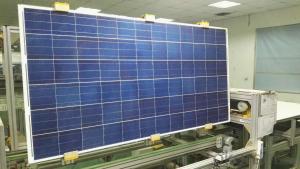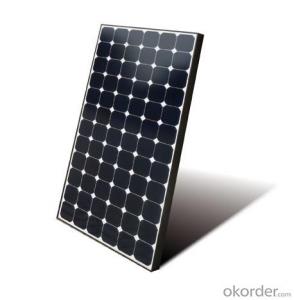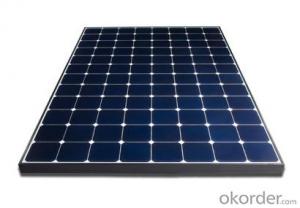Home Depot Solar Energy Systems - CNBM Poly 80W Off Grid Solar System with 10 Years Warranty
- Loading Port:
- Shanghai
- Payment Terms:
- TT OR LC
- Min Order Qty:
- 100 watt
- Supply Capability:
- 1000 watt/month
OKorder Service Pledge
OKorder Financial Service
You Might Also Like
Specification
CNBM Poly 80W Off Grid Solar Sytem with 10 Years Warranty
Product description
Electrical power can be generated on-site with renewable energy sources such as solar (particularly with photovoltaics), wind, micro hydro, geothermal; with a generator or Micro combined heat and power with adequate fuel reserves. Such a system is called a stand-alone power system. In addition, it is possible to simply eliminate electric power such as in Old Order Amish and Old Order Mennonitecommunities.
TThe concept of a sustainable off-grid community must take into consideration the basic needs of all who live in the community. To become truly self-sufficient, the community would need to provide all of its own electrical power, food, shelter and water. Using renewable energy, an on-site water source, sustainable agriculture and vertical farming techniques is paramount in taking a community off the grid. A recent concept design by Eric Wichman shows a multi-family community, which combines all of these technologies into one self-sufficient neighborhood. To grow the community you simply add neighborhoods using the same model as the first. A self-sustained community reduces its impact on the environment by controlling its waste and carbon footprint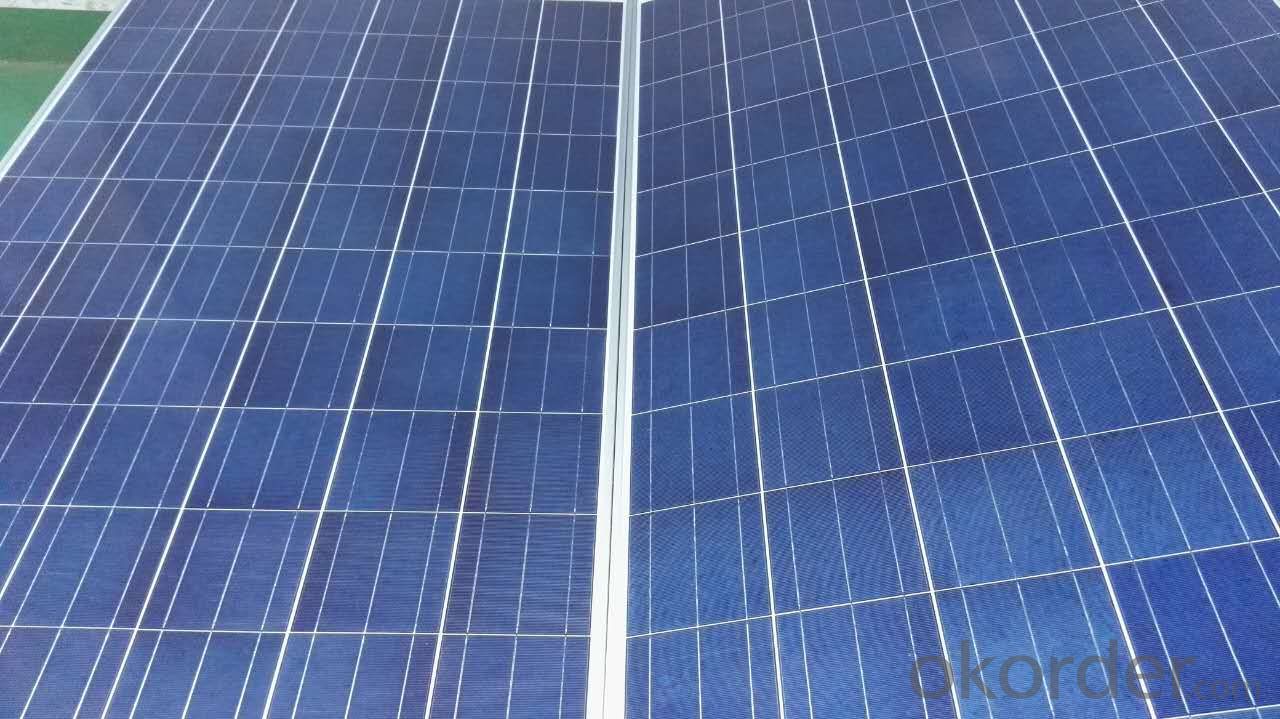
Application
Residential
Commercial
Industrial
Feature
Off-the-grid homes are autonomous; they do not rely on municipal water supply, sewer, natural gas, electrical power grid, or similar utility services. A true off-grid house is able to operate completely independently of all traditional public utility services. The idea has been recently popularized by certain celebrities including Ed Begley, Jr.[3] who stars in the Living with Ed[4] television show on the Home & Garden Television (HGTV) network. Actress Daryl Hannah promotes off-grid living and constructed her home in Colorado according to those principles, as does survival expert and Dual Survival co-star Cody Lundin,[5] who lives in a self-designed, passive solar earth house in the high-desert wilderness of Northern Arizona, collecting rainwater, composting waste, and paying nothing for utilities.[6][7]
Packaging
With carton and box
- Q: Can solar energy systems be used in countries with low sunlight availability?
- Yes, solar energy systems can still be used in countries with low sunlight availability. While it is true that solar energy systems rely on sunlight to generate electricity, advancements in technology have made it possible to capture and utilize even small amounts of sunlight efficiently. Additionally, solar energy systems can be designed to incorporate other renewable energy sources, such as wind or hydroelectric power, to supplement low sunlight availability. Furthermore, using energy storage systems, such as batteries, can help store excess energy during periods of low sunlight and release it when needed. Therefore, even in countries with low sunlight availability, solar energy systems can still be a viable and sustainable option for generating electricity.
- Q: Can solar panels be used in military operations or remote military outposts?
- Yes, solar panels can be used in military operations or remote military outposts. They provide a reliable and sustainable source of energy, reducing dependence on fuel supply lines and minimizing the environmental impact. Solar panels can be easily integrated into various military systems, providing power for communication equipment, surveillance systems, and other essential devices. Additionally, their portability and ability to operate in remote locations make them a practical solution for military operations and outposts where access to traditional power sources may be limited.
- Q: How do solar energy systems impact the stability of the electrical grid?
- The stability of the electrical grid can be influenced in both positive and negative ways by solar energy systems. On the one hand, these systems aid in diversifying the energy mix by providing an environmentally friendly and renewable source of electricity. This reduces reliance on fossil fuels and lessens greenhouse gas emissions, thereby promoting a more sustainable grid. Furthermore, solar energy systems can enhance grid stability by decreasing the demand for electricity during daylight hours. When the sun is shining, solar panels generate electricity at their maximum capacity, which can offset the need for fossil fuel power plants to operate at peak levels. This helps alleviate strain on the grid during periods of high demand, ultimately preventing potential power outages or blackouts. Nonetheless, solar energy systems also present challenges to the stability of the electrical grid. The intermittency of solar power generation, for instance, poses a significant obstacle. Since solar power relies on weather conditions, it fluctuates throughout the day. This fluctuation can create imbalances between electricity supply and demand, potentially destabilizing the grid. To address this issue, grid operators must effectively manage the integration of solar energy systems into the grid by implementing advanced forecasting and grid management technologies. Moreover, in certain regions with a high penetration of solar energy systems, there can be an excess of electricity during peak solar production hours. This surplus energy may not be efficiently utilized or stored, leading to voltage fluctuations and grid instability. Grid operators must invest in energy storage technologies, such as batteries, to store excess solar power and release it when needed, ensuring grid stability. In conclusion, solar energy systems exert a significant influence on the stability of the electrical grid. While they contribute to a cleaner and more sustainable energy mix, their intermittent nature and potential for over-generation necessitate careful grid management and the integration of energy storage technologies. With proper planning and investment, solar energy systems can play a vital role in achieving a stable and resilient electrical grid.
- Q: Are there any tax credits available for installing a solar energy system?
- Yes, there are tax credits available for installing a solar energy system. The federal government offers a Solar Investment Tax Credit (ITC) that allows homeowners and businesses to deduct a percentage of the system's cost from their taxes. Additionally, some states and local governments may also offer their own tax incentives for solar installations.
- Q: Are there any risks of electrical arcing with solar energy systems?
- Solar energy systems have inherent risks of electrical arcing. This occurs when insulation in electrical components breaks down, causing electricity to flow through non-conductive materials like air. The consequences can be hazardous, including fire and damage to the system. There are several factors that can lead to electrical arcing in solar energy systems. Faulty wiring, loose connections, and damage to solar panels are common culprits. These issues increase the likelihood of electrical arcing, which can result in overheating, component melting, and even fires. To mitigate these risks, it is crucial to have qualified professionals install and maintain the solar energy system in accordance with industry standards and regulations. Regular inspections and maintenance are necessary to identify and address potential issues that could cause electrical arcing. In addition, using high-quality electrical components and implementing proper grounding techniques can help reduce the risk of electrical arcing. Safety measures such as circuit breakers, surge protectors, and arc fault circuit interrupters (AFCIs) can provide further protection against electrical arcing. In conclusion, while solar energy systems have many benefits, it is important to be mindful of the risks of electrical arcing. By ensuring proper installation, maintenance, and adherence to safety guidelines, these risks can be minimized, allowing for the safe and efficient operation of solar energy systems.
- Q: Can solar panels be installed on mobile homes or trailers?
- Yes, solar panels can be installed on mobile homes or trailers. In fact, they are a popular option for those seeking to increase energy efficiency and reduce reliance on external power sources. The lightweight and flexible nature of modern solar panels makes them suitable for installation on the roofs of mobile homes and trailers. They can provide a reliable and sustainable source of electricity, making these homes more environmentally friendly and cost-effective in the long run.
- Q: Can solar energy systems be installed on airports or transportation hubs?
- Yes, solar energy systems can be installed on airports or transportation hubs. In fact, many airports around the world have already embraced solar power as a clean and sustainable energy source. These systems can be installed on rooftops, parking lots, or even as ground-mounted arrays near the facilities. Solar energy can help airports and transportation hubs reduce their carbon footprint, lower energy costs, and contribute to a greener and more sustainable future.
- Q: Can solar energy systems be used in powering green hotels or eco-resorts?
- Yes, solar energy systems can definitely be used to power green hotels or eco-resorts. Solar panels can be installed on the roofs of buildings or in nearby areas to generate electricity from the sun's rays. This renewable energy source helps reduce the carbon footprint of these establishments by reducing reliance on fossil fuels. Additionally, solar energy systems can also provide hot water for showers and pools, further enhancing the sustainability of these eco-friendly accommodations.
- Q: Can solar energy systems be used in powering airports or transportation hubs?
- Yes, solar energy systems can be used to power airports or transportation hubs. In fact, many airports around the world are already using solar energy to offset their energy consumption and reduce their carbon footprint. Solar panels can be installed on rooftops, parking lots, or unused land at airports to generate electricity that can be used to power various operations, such as lighting, heating, cooling, and even charging electric vehicles. This helps airports become more sustainable and reduce their dependence on fossil fuels.
- Q: Can solar energy systems be used in powering retirement homes or assisted living facilities?
- Retirement homes and assisted living facilities can indeed utilize solar energy systems to power their operations. These facilities face a substantial energy demand for heating, cooling, lighting, and electrical appliances. However, by installing solar panels on rooftops or suitable areas, these facilities can generate their own electricity and decrease their dependence on the grid. The implementation of solar energy systems offers significant advantages for these establishments. One notable benefit is the potential for substantial cost reduction, as solar power can offset a significant portion of their electricity bills. This aspect is especially crucial for retirement homes and assisted living facilities, which operate on limited budgets and must allocate resources efficiently. By harnessing solar power, these facilities can redirect the saved funds toward providing enhanced care and services for their residents. Moreover, solar energy systems contribute to a cleaner and more sustainable environment. Retirement homes and assisted living facilities bear a responsibility to promote their residents' well-being, and the utilization of solar power enables them to reduce their carbon footprint. This environmentally friendly approach can positively impact the health and overall quality of life for the residents. Additionally, solar energy systems serve as a reliable power source during emergencies or power outages. In areas prone to extreme weather events, where power disruptions are frequent, having a solar energy system with battery storage ensures a continuous and uninterrupted power supply to critical areas such as medical equipment, lighting, and HVAC systems. In conclusion, solar energy systems offer a feasible and advantageous solution for powering retirement homes and assisted living facilities. These systems can significantly decrease operating costs, promote sustainability, and provide a reliable power source, ultimately enhancing the quality of care and services provided to residents.
Send your message to us
Home Depot Solar Energy Systems - CNBM Poly 80W Off Grid Solar System with 10 Years Warranty
- Loading Port:
- Shanghai
- Payment Terms:
- TT OR LC
- Min Order Qty:
- 100 watt
- Supply Capability:
- 1000 watt/month
OKorder Service Pledge
OKorder Financial Service
Similar products
Hot products
Hot Searches
Related keywords
